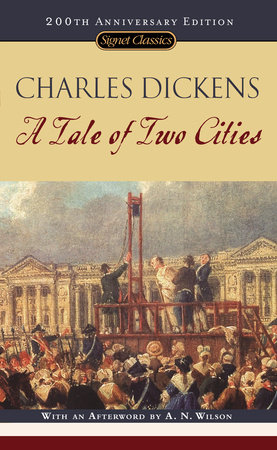A Tale of Two Cities — Charles Dickens — Recommend

This is a re-read for me, but I got much out of it this time than the last. I picked it up because I wanted a fresh look at the human side of the French Revolution in light of the political unrest (protests, riots, murders, etc.) that have marked the 2nd half of 2020 in the USA. In some ways, it's relieving to see the differences between pre-revolution France and USA 2020. The differences between rich and poor are nowhere near as pronounced and social mobility is much, much higher. On a more doer note, the similarities are disturbing. Most disturbing of all is the similarities between the french revolution leaders and the leading voices of the would-be 1519 revolutions in 2020. Specifically, the need for equity over equality, vengeance over reconciliation, and the identification of problems over the proposition of solutions. This ideology is what lead to the reign of terror. With that preface, I can't recommend this book enough right now as a cautionary tale. It's ever mo...

